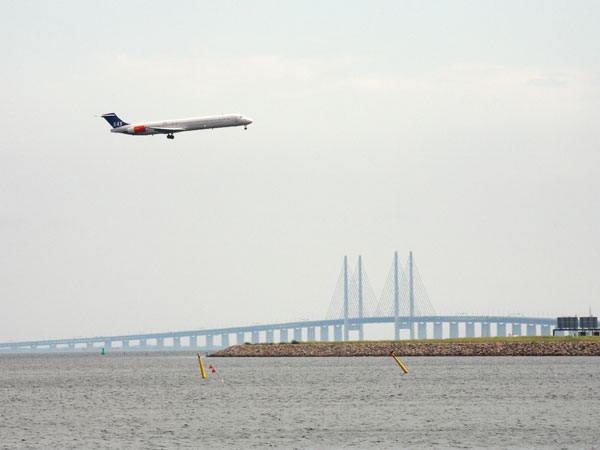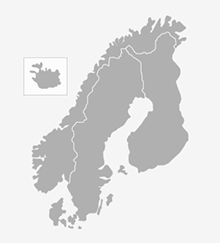Since 2013, the Swedish National Road and Transport Research Institute (VTI) has had several government commissions to produce documentation on the costs to society caused by traffic. On 1 November 2018, the agency reported its latest commission, SAMKOST 3. The commission comprised all types of traffic, but the focus has been on shipping and aviation.
When we use roads and railways, aircraft and ships to transport ourselves and our goods, it gives rise to costs to society – macroeconomic costs. Some of these costs have no direct impact on the individual road user or shipper. Such costs can be caused by vehicle wear on the infrastructure or the use of fuels that cause carbon dioxide emissions and other air pollution. Those who spend time in the vicinity of roads, railways and aircraft may be disturbed by the noise. Traffic also leads to accidents and congestion. These macroeconomic costs are often referred to as external effects.
Society can use various steering instruments to reduce external costs. This is called internalisation of external costs. If taxes and charges are on a par with the external costs, the recovery rate is 100 per cent.

Photo: Hejdlösa Bilder
In SAMKOST 3, VTI has updated the knowledge base and produced numbers in regard to the cost of accidents, congestion, noise, air pollution and climate impact. In the final report for SAMKOST 3, VTI draws a number of conclusions based on the analyses conducted over the course of the government commission. Some of the conclusions are as follows:
Aviation (aircraft)
Charges for take-off and landing as well as air navigation charges cover the marginal costs that arise in Swedish airspace. It is difficult to determine what inconvenience aviation may cause en route to and from Sweden.
Shipping
In shipping too, the conclusion is that fairway and pilotage dues will cover the macroeconomic costs caused by shipping in Swedish waters. In the same way as with aviation, it is more difficult to assess what problems the shipping may cause en route to and from Sweden.
Road and railway traffic
The taxes paid by car owners are higher than the costs they generate, especially in rural areas. The track access charges paid by passenger train operators are at times slightly over and at times slightly under the marginal costs. However, neither road haulage nor freight train operators pay for the costs associated with transports.

Photo: Mostphotos
Carbon dioxide
In SAMKOST 3, VTI has assessed the impact of a full internalisation of the macroeconomic traffic costs on the Swedish environmental objectives. The general conclusion is that full internalisation would have a very small effect on relevant environmental and climate objectives. Not least because some environmental objectives affected by traffic, not including the climate objective, are already close to being achieved. When it comes to the climate objective, i.e. reducing carbon dioxide emissions from national transports (excluding air transport) by 70 per cent by 2030, full internalisation would make it easier to reach the goal by 2030. At the same time, the effect would be very limited using the current tax rate of SEK 1.14 per kilo of carbon dioxide.
The report contains a discussion on carbon tax and other steering instruments. The size of the conversion costs incurred by society will depend on which steering instruments are implemented, aside from a carbon tax.
“This discussion could be a support for decision-makers in choosing between instruments. However, the politicians determine whether the steering instruments will cost more or less than the current rate of SEK 1.14 per kilo of carbon dioxide,” says Mattias Haraldsson, Research Director at VTI and Project Manager for SAMKOST 3.
 Contact:
Contact:
Mattias Haraldsson
mattias.haraldsson@vti.se
VTI, Sweden






Follow us: